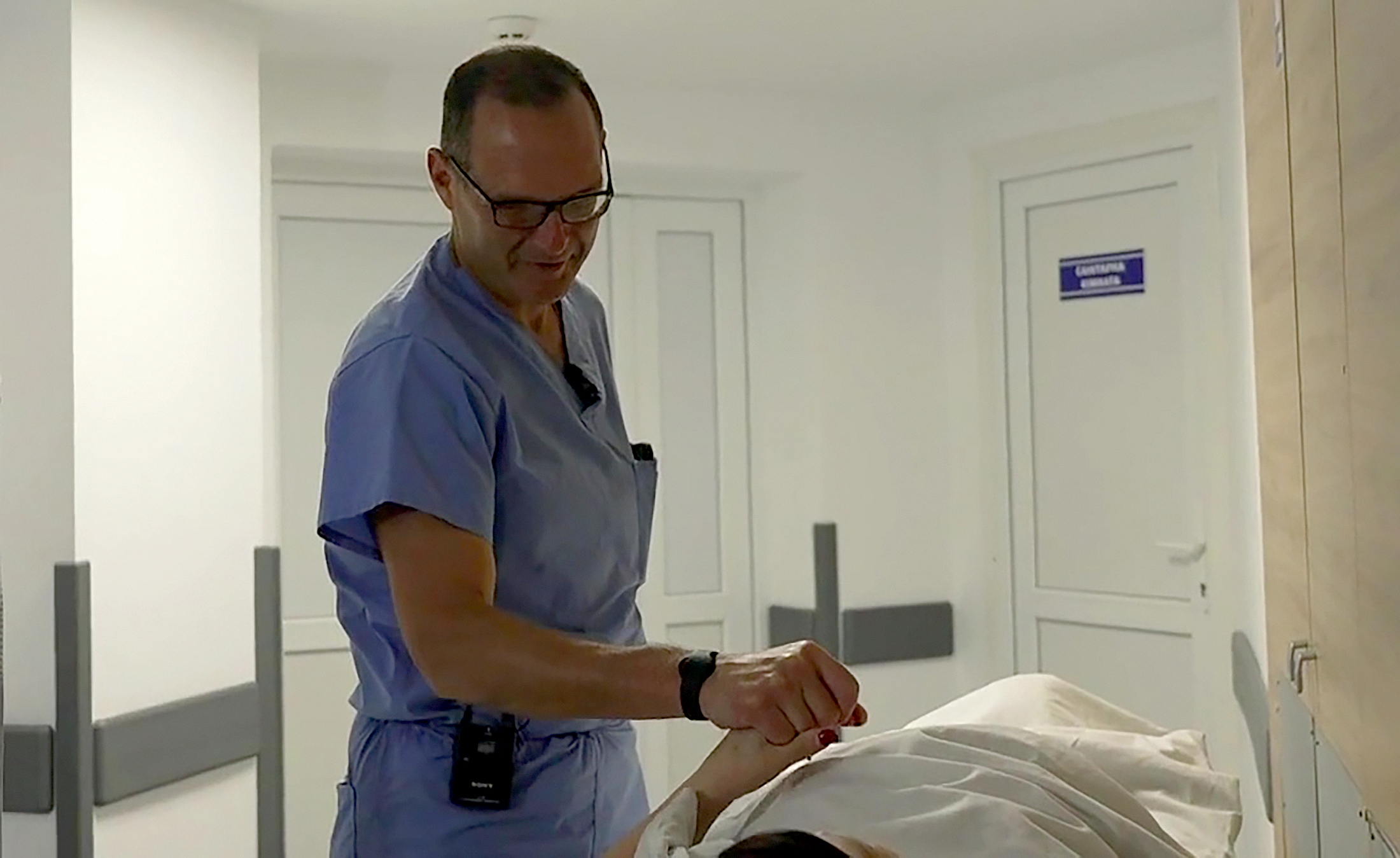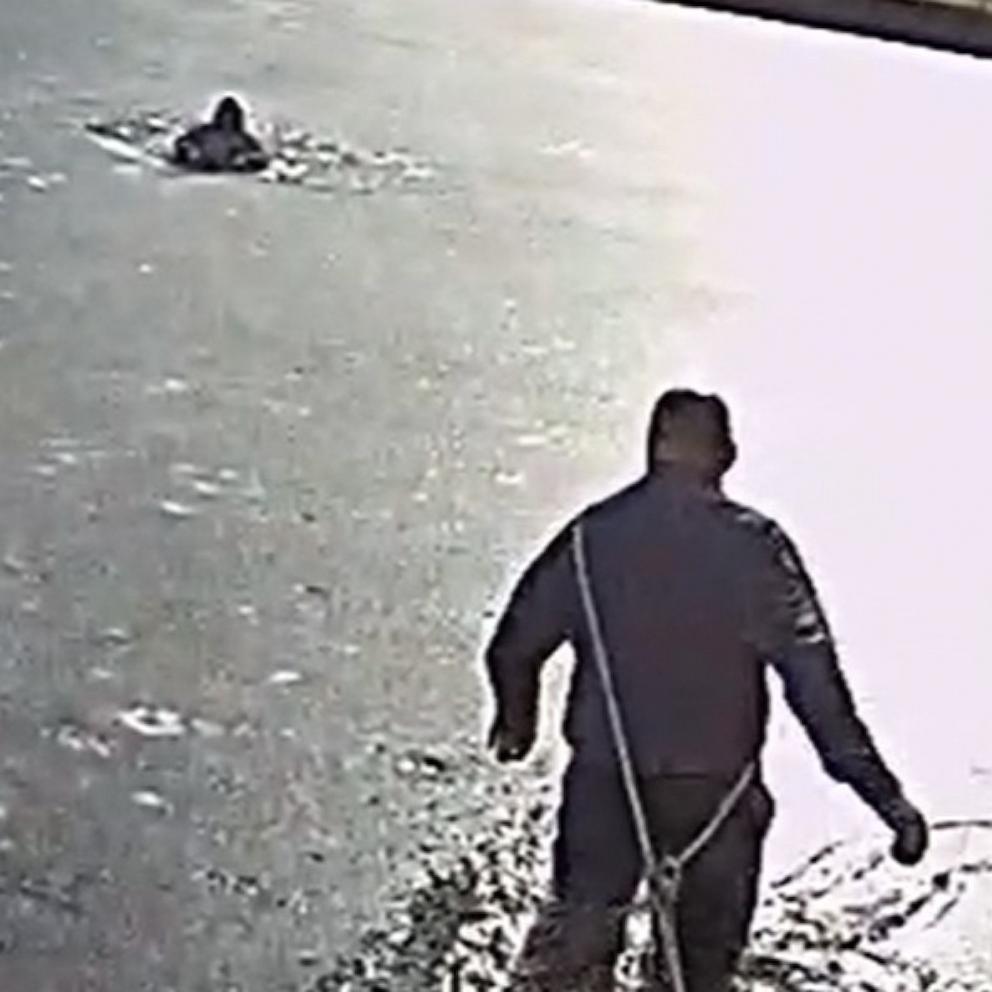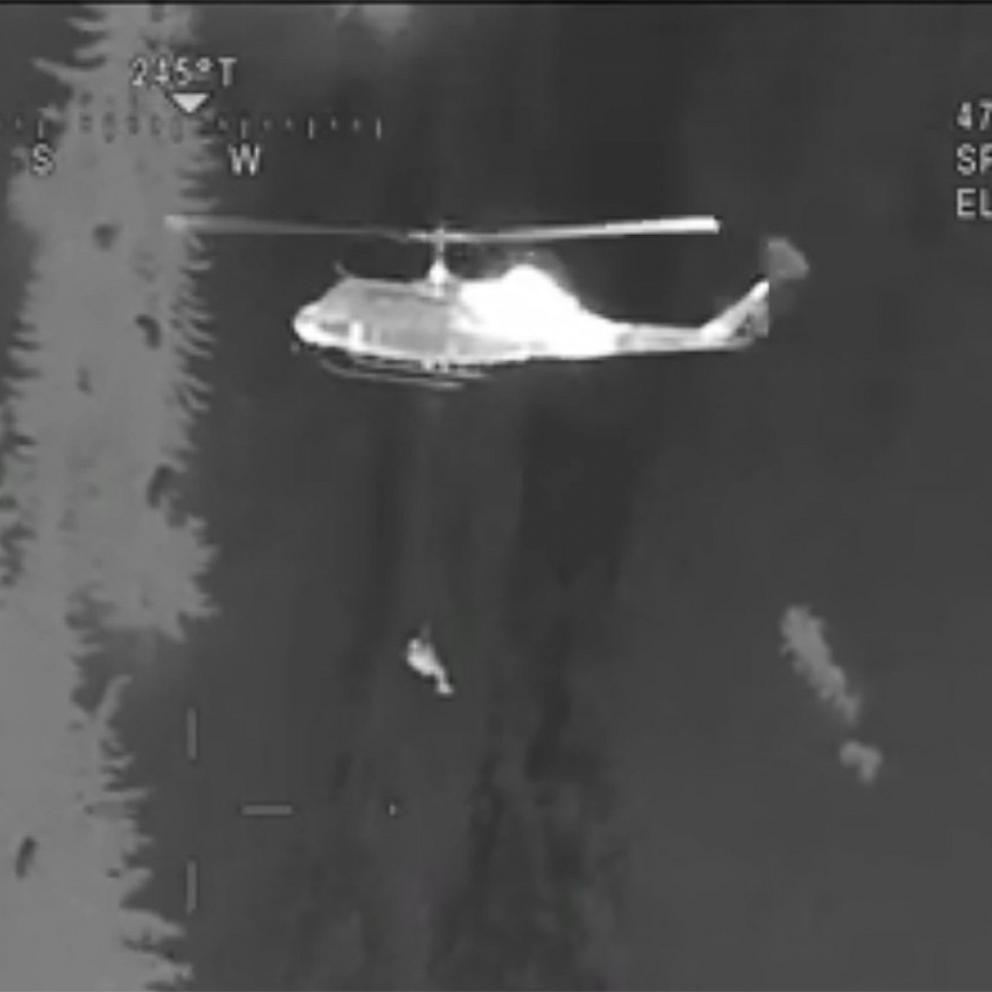Inside American battlefield surgeon's quest to help in Ukraine
In a hospital not far from the front lines of the Ukrainian-Russian conflict lies a hospital filled with patients who have been caught in the crossfire.
The Ukrainian medical staff at Dnipro's Mechnikov Hospital said they've been emotionally, mentally and physically drained as they have seen over 14,000 patients over the last 14 months. But the staff has a had some help from an American physician who is no stranger to answering the call during wartime trauma.
Dr. Rocco Armonda, a neurosurgery specialist and Army veteran, has been assisting the staff at the hospital for the last couple of months and brought his expertise for some of the hospital's most serious cases.

"It's simple fate," he told ABC News. "I get a call from one of my Army buddies who's helping the Ukrainians doing trauma, and he says they need help with neurosurgery [and] with neurovascular…I said I was there."
Armonda, a West Point graduate, has treated several wartime patients throughout the years, including in Afghanistan and Iraq. He was one of the medical personnel who operated on ABC News's Bob Woodruff after he was wounded while on assignment in Iraq in 2006.
The surgeon said the war in Ukraine presents different types of challenges than other battlefield injuries he's seen in the past.

The type of ammunition used by Russian forces explode in the air, and target people from above, Armonda explained.
"So you see all these injuries in the vault and in the skull base," he said while pointing at an x-ray image.
Andriy Sirko, a Ukrainian neurosurgeon at Mechnikov, told ABC News that Armonda has helped the staff tremendously.
"Rocco has the most experience, not only Ukraine [but] in the world," he said.

But Armonda and the other staff members warned that the experience can only go so far as the medical center is in dire need of extra resources. He noted that on one day there were 20 ambulances lined up outside with patients.
"It's just one hospital, one of the busiest on the forward lines, and it just gives you an idea that this is on the order of 10 times greater than what we saw in Iraq and Afghanistan," he said.
Armonda said that not every day is a success as it loses many patients a day.

"There are moments when you did your best and you still lost the patient. There are moments when we should have done better and we didn't. And it's heartbreaking, but you realize that’s your job, your mission," he said.
Armonda said he will continue to help the hospital staff, who he said he has formed a strong bond, and do what he can to help the patients who come through those doors.
"There are no egos in these guys. It's all about what's the best thing for these human beings who are laying their life on what is truly the outpost of democracy," he said.




